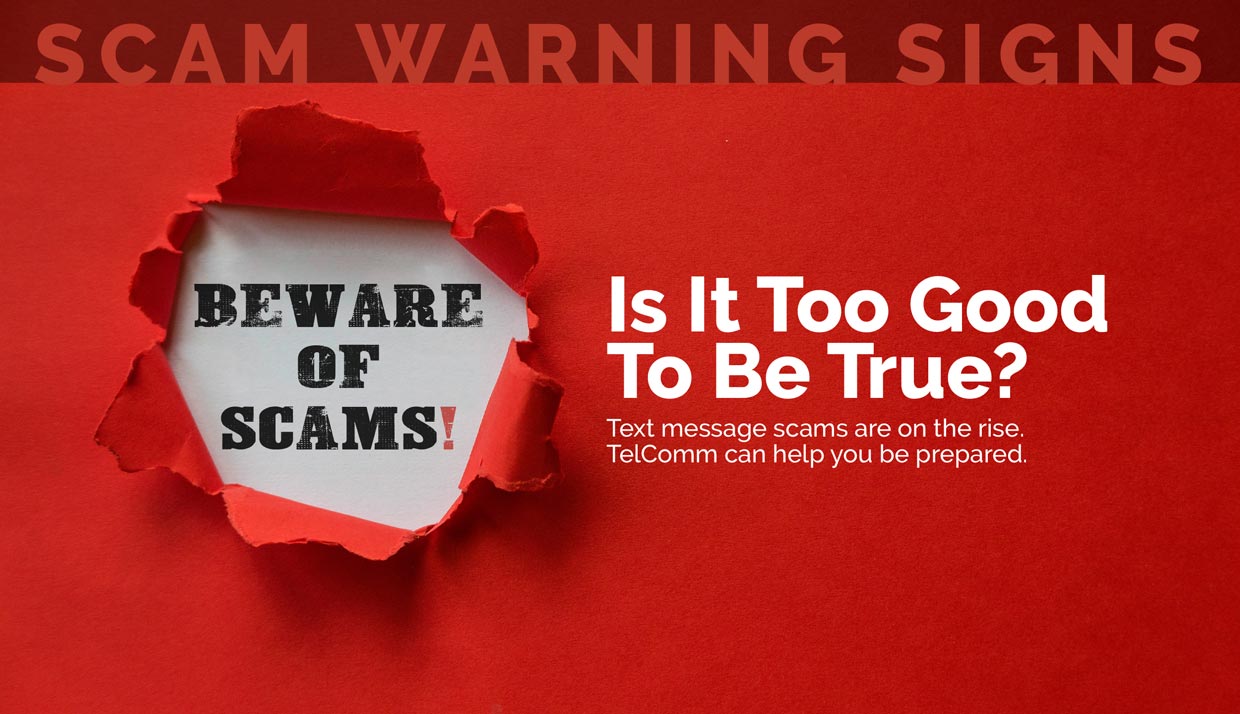IS IT TOO GOOD TO BE TRUE?
Text message scams are on the rise.
Here are a few things you can do to be prepared.
Claim Your Prize or “You Won!” Scam:
This scam can either come in a text message or a website popup, congratulating you on your win. All you have to do to claim one of the many cool prizes (gift cards, headphones, tools, coolers, earpods, phones, etc.) is fill out a survey.
Fake OfferUp Website Scam:
Fake sites are also referred to as mirror sites. Scammers set up a fake page intended to look like a legitimate OfferUp listing, but instead, the page leads you to a link or a form to fill out to complete the purchase. Scammers can then misuse this information, causing serious privacy issues and financial loss.
These are incredibly easy to fall for.
Signs of Prize Scam:
- You have to pay to get your prize. If someone tells you to pay for “shipping and handling,” you’re dealing with a scammer. Scammers want you to pay with gift cards, cryptocurrency, or cash, as these methods are very difficult to track.
- Paying increases your chances/odds of winning. Sweepstakes are by chance. Sweepstakes are FREE.
- You must provide your financial information. There is no reason ever to give your debit/credit card number or bank account information to win any prize.
Text Message Scams to Avoid:
- Texts claiming that you’ve won a prize or sweepstakes
- Texts claiming that your debit or credit card has been locked and to call this number
- Missed delivery notification scams. These messages will contain an “urgent update” about delivery or to receive your package click on this (Amazon, USPS, FedEx)
- Text scams claiming that your bank is closing your account and to call this number
- Text claiming that your payment for a subscription service didn’t go through: problem with your account, an unauthorized login, or payment issue.
Your identity is easy to compromise and hard to reclaim. Here are a few ways to protect yourself.
- Be skeptical when it comes to any offer that sounds too good to be true.
- Directly call your financial institution at the number on their website if you receive any message about your account.
- Directly call any subscription service at the number on their website if you receive any message about your account.
- Never give personal or financial information from a source that contacts you unprompted.
- Choose strong passwords. Do not reuse on multiple platforms. The more a password is used, the less reliable it is.
- Delete suspicious text messages. Do not click on links or attachments.
For more tips on protecting your identity, talk to TelComm Credit Union.





